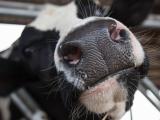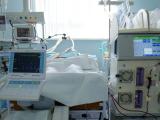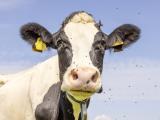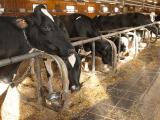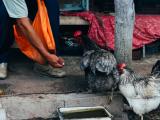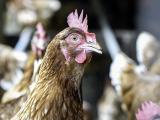Jan 17, 2006 (CIDRAP News) – More cases of human illness and death were laid at the door of the H5N1 virus in Turkey and Indonesia today.
The World Health Organization (WHO) on Monday confirmed the death from H5N1 of a 5-year-old boy from Dogubayazit district in Turkey's eastern Agri province. His 14-year-old sister had died on Jan 15, and results on Monday confirmed her death was from H5N1.
The WHO's situation update says the newly confirmed human cases bring the total in Turkey to 20, of which 4 have been fatal. The agency has not adjusted its case-count chart to reflect those numbers, pending confirmation by a WHO partner laboratory in the United Kingdom.
The agency's update emphasized that to date all human H5N1 infections followed "direct exposure to diseased poultry." WHO noted that in the most recent case described above, the children fell ill after slaughtering a duck from their home flock. Ducks in that flock had begun dying Jan 1, WHO said.
Late this afternoon, an Associated Press (AP) report from Ankara said initial tests on another child showed H5N1 infection, which if confirmed would bring the number of human cases in Turkey to 21. The child is from Dogubayazit and is hospitalized in the eastern city of Erzurum, a health ministry official told the AP.
Also in Ankara today, a WHO official said Turkey's outbreak has a lower case-fatality rate than outbreaks in Southeast Asia, according to a story by the United Nations Integrated Regional Information Networks (IRIN) news.
"Turkey is seeing a fatality rate of 20 percent, which is lower than the fatality rate observed in Asia, which was around 58 percent," Cristiana Salvi, a WHO spokeswoman in Turkey, told IRIN. But she added a caveat: "There could be other factors which we are investigating as a lot of cases are still in hospital."
Cases reported in Indonesian siblings
InIndonesia, local tests confirmed that a 13-year-old girl's death Jan 14 in Indramayu, West Java, was due to H5N1 infection, according to a Reuters story from the online edition of The Jakarta Post. Her 3-year-old brother, who died today, was also being tested, as was a surviving sister, Reuters reported. The boy's initial test was positive, but a subsequent local test was inconclusive, an Indonesian health ministry official told Reuters.
A Hong Kong laboratory has also confirmed local test results showing that a 29-year-old woman who died Jan 11 at Sulianti Saroso Hospital in Jakarta had avian flu, The Jakarta Post reported today. Her death raised the number of human H5N1 deaths in Indonesia to 13, with 20 total cases, the newspaper said. A WHO update on Jan 14 confirmed the 29-year-old's cause of death and said her case brought the total in Indonesia to 17, with 12 fatalities.
The WHO described the woman as a midwife at a maternity ward in a Jakarta hospital, but said it was unlikely that she became infected on the job. Instead, WHO is investigating her neighborhood and a live-bird market she visited days before she fell sick. Contact tracing has not shown any evidence that the woman infected other people, WHO noted.
Turkey's poultry surveillance criticized
A nine-page report from Turkish authorities to the World Organization for Animal Health (OIE), dated today, indicates that two of Turkey's poultry outbreaks began Nov 25 and 29, 2005. However, reports from Turkey to the OIE on Dec 8, 2005, do not reflect those outbreaks.
A report by Bloomberg News today describes a "second wave" of poultry outbreaks that weren't reported to OIE for more than 3 weeks.
"We think that the condition of veterinary infrastructure in eastern Turkey led to this delay on the information," Bernard Vallat, director-general of the OIE, told Bloomberg from Beijing today. "To manage avian flu in animals, time is a crucial point because if a country is in a position to have a rapid response within two days, the cost of the management is very low, compared with a delay of three or four days. The spread of the disease is exponential, which is why time is crucial."
See also:
Jan 16 WHO update
http://www.who.int/csr/don/2006_01_16/en/index.html
Jan 14 WHO update
http://www.who.int/csr/don/2006_01_14/en/index.html
Turkey's outbreak report to OIE
http://www.oie.int/downld/AVIAN%20INFLUENZA/Turkey%20Follow-up%20report%2020060117.pdf
